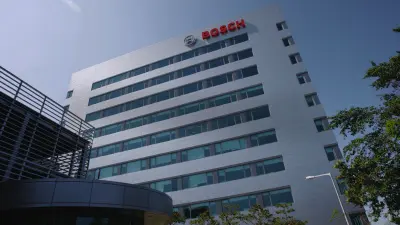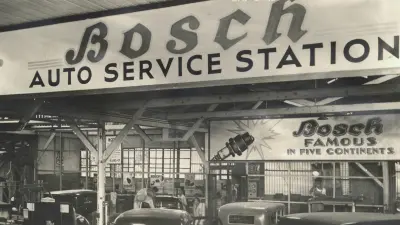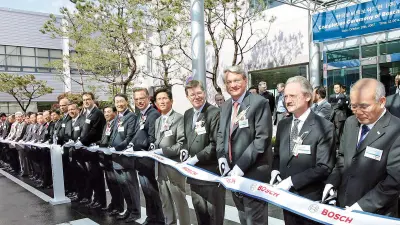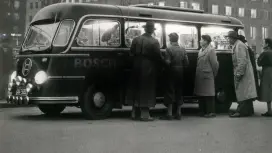The history of Bosch in Korea

It has been over a century since Bosch gained a foothold in Korea. In the beginning, in 1920, Bosch signed a contract with a trading partner who also served Bosch in Japan. The quiet business rapidly gained momentum as Korea's rise to a leading industrial nation began, with a first joint venture in 1984, its own sales office in Seoul in 1985 and the founding of the holding company Bosch Korea Ltd. on November 1, 1989. Time for a look back at a success story that wasn't one at the beginning.
The start over a century ago
In 1920, the then Robert Bosch AG agreed a contract with the internationally active Hamburg trading company Illies & Co. for distribution in Korea. Magneto ignition was known worldwide and was an important building block for the success of the automobile. Without Bosch ignition, vehicles could not achieve long ranges. And so Korea, with its burgeoning automotive market, was also of interest to Bosch. However, the company was not yet large enough to set up its own agencies worldwide. The international experience of Illies & Co. came at the right time, as they were familiar with the Asian markets and were also active for Bosch in Japan.

Tranquil first decades
However, automobilism hardly developed at this time. The automobile did not become a mass phenomenon until the 1950s, except in the USA. The Korean War, the division of the country and unstable political situations hampered the economic upturn, which was finally given fertile ground with the beginning of today's Sixth Republic in South Korea. The era of the “tiger economies” began, and Korea took the lead economically. The international success of the Korean automotive industry opened new business dimensions for Bosch.
Strategies in emerging South Korea
In 1984, Bosch founded the first Korean joint venture, with Hankuk Diesel Kiki Co. Ltd and ZEXEL to produce automotive equipment in order to gain a foothold in the up-and-coming South Korean automotive industry. In order to strategically plan business development in Korea, a sales office was founded in Seoul on July 1, 1985, as the company's first local production facility with partners was still being established. It was now necessary to quickly reach agreements with the new up-and-coming “players” Hyundai, Kia and Daewoo on the development of original equipment for new models as well as the supply of vehicle spare parts so as not to leave the field to the competitors. The ambitions were unmistakable: KIA Motors, a South Korean car manufacturer that was still little known internationally at the time, announced something for 1989 that economic experts could hardly believe: the opening of a car factory with a production capacity of 300,000 vehicles per year. The targets were ambitious, but the experts at Bosch knew that the South Korean industry was very serious about its ambitious goals. And this is visible today with millions of cars produced in Korea.

Local presence
In terms of local entry, Bosch initially continued to rely on more joint ventures: the establishment of Korea Electronic Fuel Injection Corporation (KEFICO) in 1987 with Mitsubishi and Hyundai, Korea Automotive Motors Corp. (KAMCO), in 1993 with Mando Machinery Corp., Korea Bosch Mechanics and Electronics Corp. Ltd. with DOOWON in 1994, the Motor Systems & Technology Company Ltd. (MOST) with KIA in the same year, and in 1997 Korean Advanced Diesel Equipment Co. Ltd. (KADE) with ZEXEL.
With the gradual takeover of the joint ventures, Bosch paved the way for itself to become a local supplier that could offer a wide range of electrical and electronic components and systems. In 1997, Bosch founded the Technical Center in Yongin in order to focus its development activities for the Korean market and consider the special development requirements of Korean automotive groups.
Bosch in Korea today
The Mobility division currently accounts for the majority of sales, but Bosch is also represented in South Korea with building technology, power tools and industrial technology from Bosch Rexroth. The subsidiary Bosch Sensortec, a manufacturer of micromechanical sensors for consumer electronics, and ETAS, a Bosch subsidiary that develops embedded systems for the automotive industry, also have a presence in South Korea. Today, Bosch Korea employs almost 1900 associates and has a total of seven locations with its headquarters and Technical Center in Yongin and the Busan, Daegu, Daejeon, Dongtan, Pangyo and Sejong sites.
Author: Dietrich Kuhlgatz
